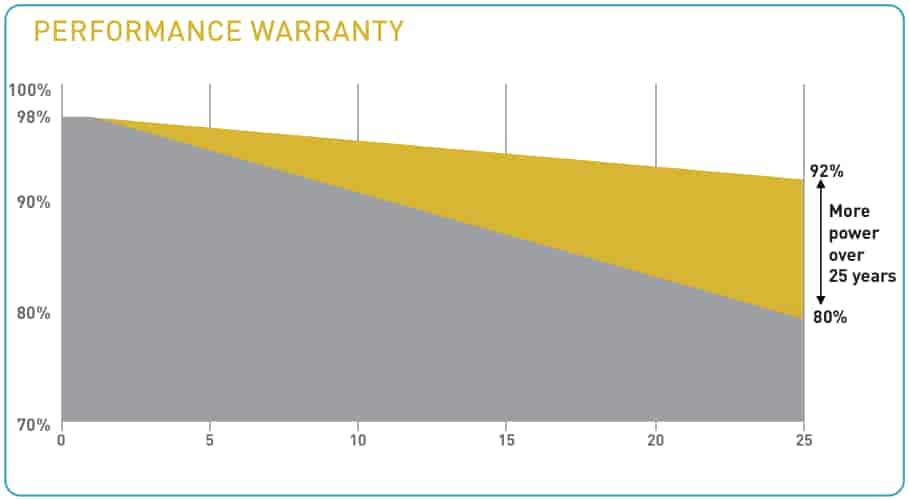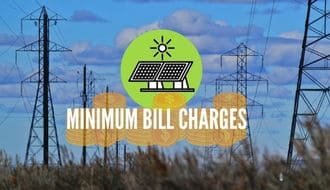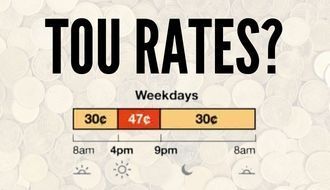How Long Will My Solar Panels Last & What Does It Mean For Me?
I've been able to find hard-to-understand articles on the subjects above, but as of 2021, I haven't seen one that goes deep on the importance of what I'm about to tell you.
And that's panel degradation!
The Ugly Truth of How Long a Solar System Lasts

When they blow their cover and they have to speak about this, I've heard companies & reps say:
- "Don't worry about that, that's not true. Our panels are the best!" (Usually, they're not).
- "The system is not composed of moving parts. Only things that move can degrade."
- "They do degrade but it doesn't affect you."
Excuse me for the words, but what a load of 💩 !
It's all excuses and lies to avoid going into uncharted territory, that to their eyes, makes homeowners ask more questions and that makes them scared of "losing the sale".
Well after this gets out, it might just end up costing them the sale anyway for hiding stuff. Now you know they degrade!
Decisions are yours, and only yours to make, not by some company that manipulated your thought process by sweet-talking you with all the lies revealed so far.
With that said, let's go deeper...
Why Does This Happen?
Just like with our faces, when wrinkles appear when we start getting old (unless you like to botox yourself), time takes its
toll on the components of a solar system.
That's normal, every product wears with time except for those military-grade phone cases. Things like corrosion and the high voltages these units continuously carry, contribute to this.
And how does it affect me?

"It doesn't actually affect you". Or at least that's what others would say haha. Right? But getting serious here... it actually does, and a lot.
The average solar system will degrade at a max of 26% after 25 years. This doesn't mean that after 25 summers the system will suddenly be like "hey, let's degrade already".
No, this is a gradual process where they steadily decline year over year, and when that much time has passed, their total degradation will be lingering just below or at a max of 26% according to manufacturers' warranties.
But degradation still sounds fancy to me, let's put it in real-life terms.
What this means, is that after all those years, a solar system would only be cranking out 74% of what it was able to in the beginning. In other words, it'll only be producing 74% of the energy a house would need.
See how this could affect you and how relevant speaking about this is?
I Don't Think This is a Good Idea... They Degrade You Know?
I'm with you. It's not at all.
But the good news is that as of today, there are these secretly kept panels that defend your trenches with the same might as the Marines or the Air Force defend the U.S.A.
Yet again, companies do their best to hide their existence because they can make a bigger profit from selling outdated ones to unsuspicious homeowners (not you).
By flashing things like an offset at 100% the average homeowner would assume their system is going to work. And it would technically do. In the beginning. But what about down the line?
Why would a proper offset matter, when it's going to quickly decline after you get it installed?
And who are these stealthily guarded subjects?

The million-dollar question. I like to call them 'ninja panels' because of the secrecy with which they're kept.
You will only see solar companies bring these guys up in case of an emergency, which to them, would be an informed prospect. But enough about the bad guys, let's talk about the good guys.
What does it take to be a ninja panel? Take a look:
Withstanding time better than the average ones and most importantly, managing to keep the degradation at a max of only 8% after 25 years, compared to the other ones at 26%.
But degradation is not the only thing they
crush. Such leaps in technology had to yield other benefits.
Let's spice it up a bit:
Having a solar system with a max degradation down to 8% doesn't mean you'll have a system producing only 92% after 25 years, at least not here at SOLARI®. Here is why:
From the moment your project is getting designed, we do our best to get it to 108% offset to pre-compensate for that before it even happens. That way, by the end of those 25 years, it's like you had just gone solar since you'd be starting at an offset of 100%.
And Here Comes The Crazy Part...
Let's pretend that XYZ solar company didn't properly inform you on this from the get-go. Solar would still be worth it with the amount of money it will save you.
Heck, even with non-ninja panels that degrade at 26%, solar would be more than worth it. Radical claim? Yeah!
But don't take my word for it, see for yourself. I will
show you a comparison table of the savings -with ninjas and without them- of one of our customers.
And yeah, in case you were wondering how the story ends, he ended up getting the ninja ones! Drag the arrow left and right to see the comparison:
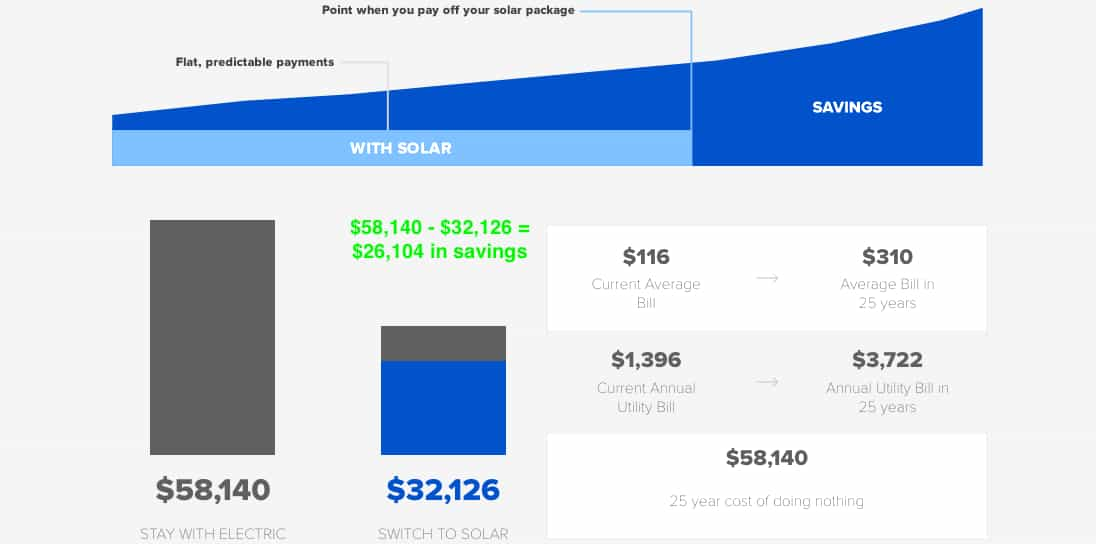
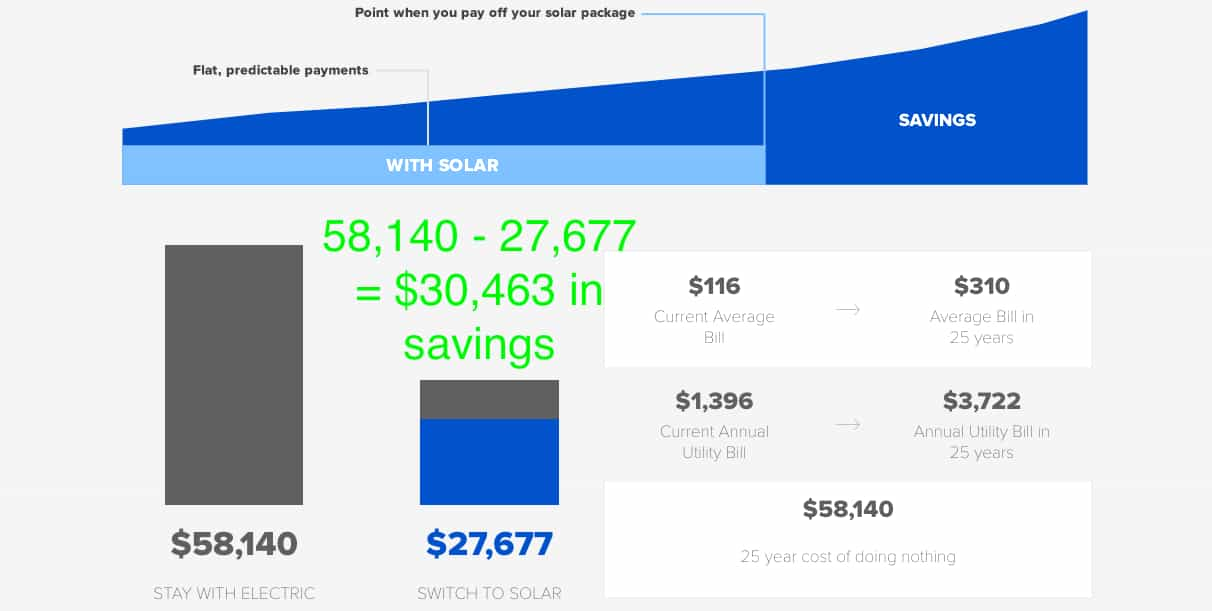
How crazy is that? Seeing is believing.
That doesn't mean we vouch for the bad practices of other companies, but it just goes to show that even with 💩 solar you can save a chunky little something.
If bottom-of-the-food-chain panels already give you the higher ground, what kind of savings do you think you can expect with the good ones?
Share with those who you care about.
Let us know what you think...


